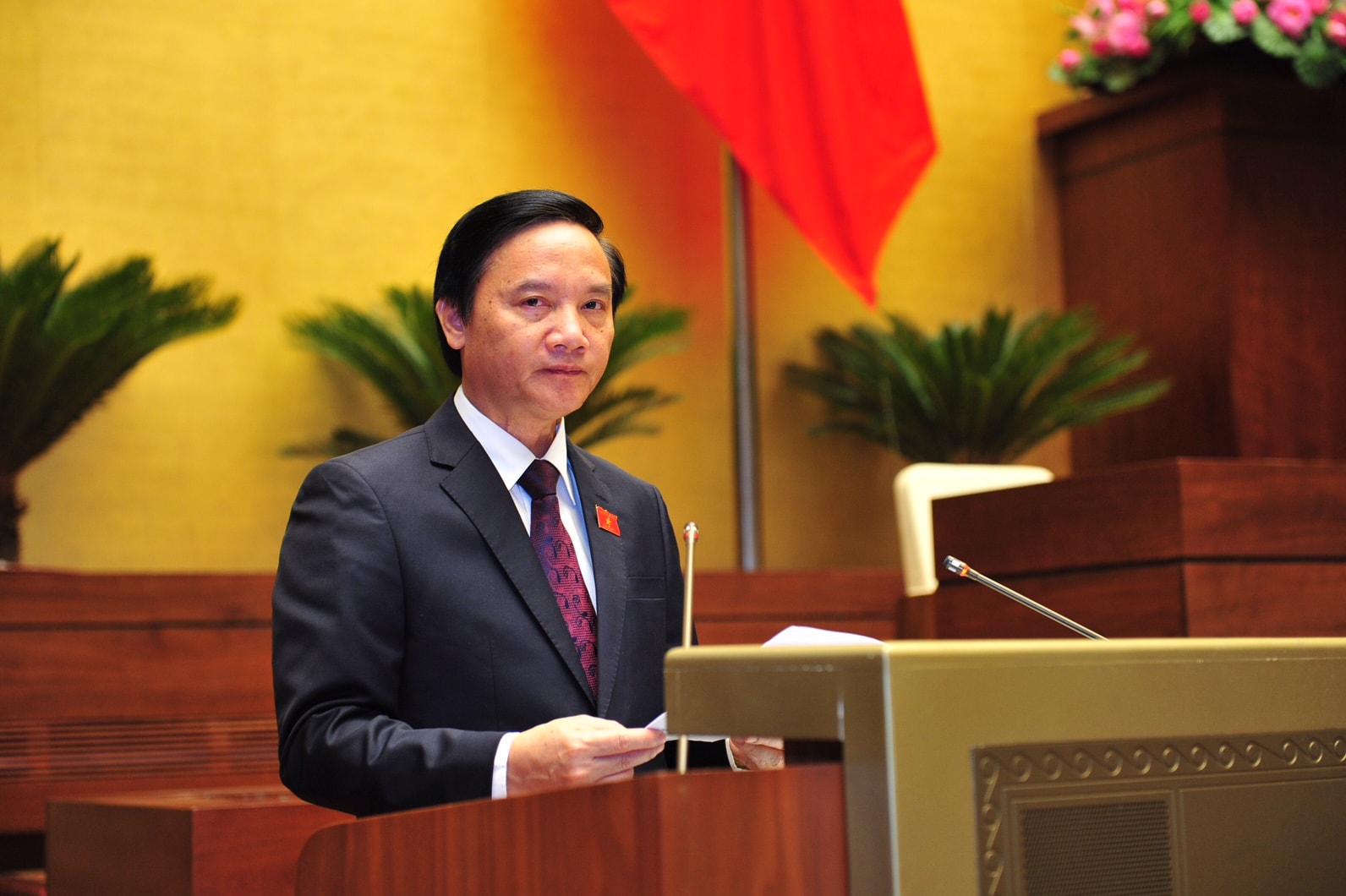Expanding the scope of state compensation
On the morning of May 31, the National Assembly held a plenary session to discuss the draft Law on State Compensation Liability (amended) with many important contents.
 |
| Chairman of the Law Committee Nguyen Khac Dinh presented a report on the draft Law on State Compensation Liability (amended). Photo: VGP/Nhat Bac |
The report on explanation, acceptance and revision of the National Assembly Standing Committee (NASC) presented by Chairman of the Law Committee Nguyen Khac Dinh said: This draft law was discussed at the 2nd session, and was studied by relevant agencies to receive opinions from delegates, scientists and people to submit to this session.
Accordingly, one of the major issues that the draft Law includes is to expand the scope of State compensation, not only in criminal proceedings, but also to include compensation for administrative management activities due to the application of illegal measures to remedy consequences of administrative violations. This is also consistent with the 2012 Law on Handling of Administrative Violations, while enhancing transparency, contributing to promoting the improvement of the investment and business environment.
Regarding compensation in criminal proceedings, the draft Law also adds the case of "A person detained in an emergency without grounds as prescribed by the Criminal Procedure Code and that person does not commit an illegal act" to be consistent with the provisions of the 2015 Criminal Procedure Code, but more specific and strict, ensuring feasibility, while ensuring the normal operation of law enforcement agencies.
Compensation in civil and administrative proceedings, the draft Law specifically stipulates the case of compensation for "Issuing a judgment or decision that has come into legal effect, but is concluded by a competent authority to be illegal, and the person issuing the judgment or decision is disciplined, held criminally liable, or their illegal behavior has been determined in the decision to resolve the complaint or the conclusion of the content of the accusation by the chief judge of the competent court".
Agency responsible for compensation
One of the issues of concern to National Assembly deputies and voters is the principle of compensation and settlement of State compensation.
Chairman of the Law Committee Nguyen Khac Dinh said that the majority of opinions suggested that the compensation principle should be inherited as stipulated in the current Law on State Compensation Liability and related laws. At the same time, it was suggested that the injured person, once having a document as a basis for a compensation request, has the right to file a lawsuit in court to request compensation settlement.
Many delegates focused on discussing the determination of the compensation settlement agency in criminal proceedings. Accordingly, the majority of opinions agreed with the provisions on determining the compensation settlement agency as in the draft Law according to the general principle that the agency that issued the final decision causing injustice is responsible for compensating the wronged person.
Explaining this content, the Standing Committee of the National Assembly said that in criminal proceedings, cases of injustice to citizens are often related to the responsibility of many public servants in the agencies conducting the proceedings who participated in the investigation, prosecution, and trial of the case. To resolve compensation for the wrongfully convicted, the current Law on State Compensation Liability and the draft Law submitted by the Government to the National Assembly both agree on the principle of determining that the agency that makes the final decision on injustice will be responsible for resolving compensation on behalf of the State.
However, in reality, especially in the stages of litigation, there are "drop points" where it is difficult to clearly determine which agency is the agency that makes the final decision to cause injustice. The draft Law submitted by the Government to the National Assembly has provided clearer regulations on how to resolve this issue based on the above principles, while ensuring increased responsibility of agencies in each stage of litigation.
Many delegates proposed clarifying the responsibility for reimbursement in cases where multiple litigants are responsible; specifying the Council for determining the responsibility for reimbursement.
Regarding this issue, the Standing Committee of the National Assembly believes that specific regulations on the responsibility for repayment in the Law are necessary, demonstrating the strictness of the law and enhancing the responsibility of public servants.
The specific reimbursement level as stipulated in the draft regulation has been considered and calculated based on the summary of the implementation of the current Law on State Compensation Liability, ensuring its reasonableness and feasibility. Therefore, the Standing Committee of the National Assembly has directed the relevant agencies to make adjustments in the direction of more specific regulations on the reimbursement level based on the factor of intentional or unintentional fault of the person performing public duties.
Regarding the authority and procedures for determining the responsibility for reimbursement of the Council for reviewing the responsibility for reimbursement, the responsibility of the head of the agency directly managing the person performing public duties, etc., are all strictly regulated in this draft amended Law.
According to Chinhphu.vn





.jpg)


